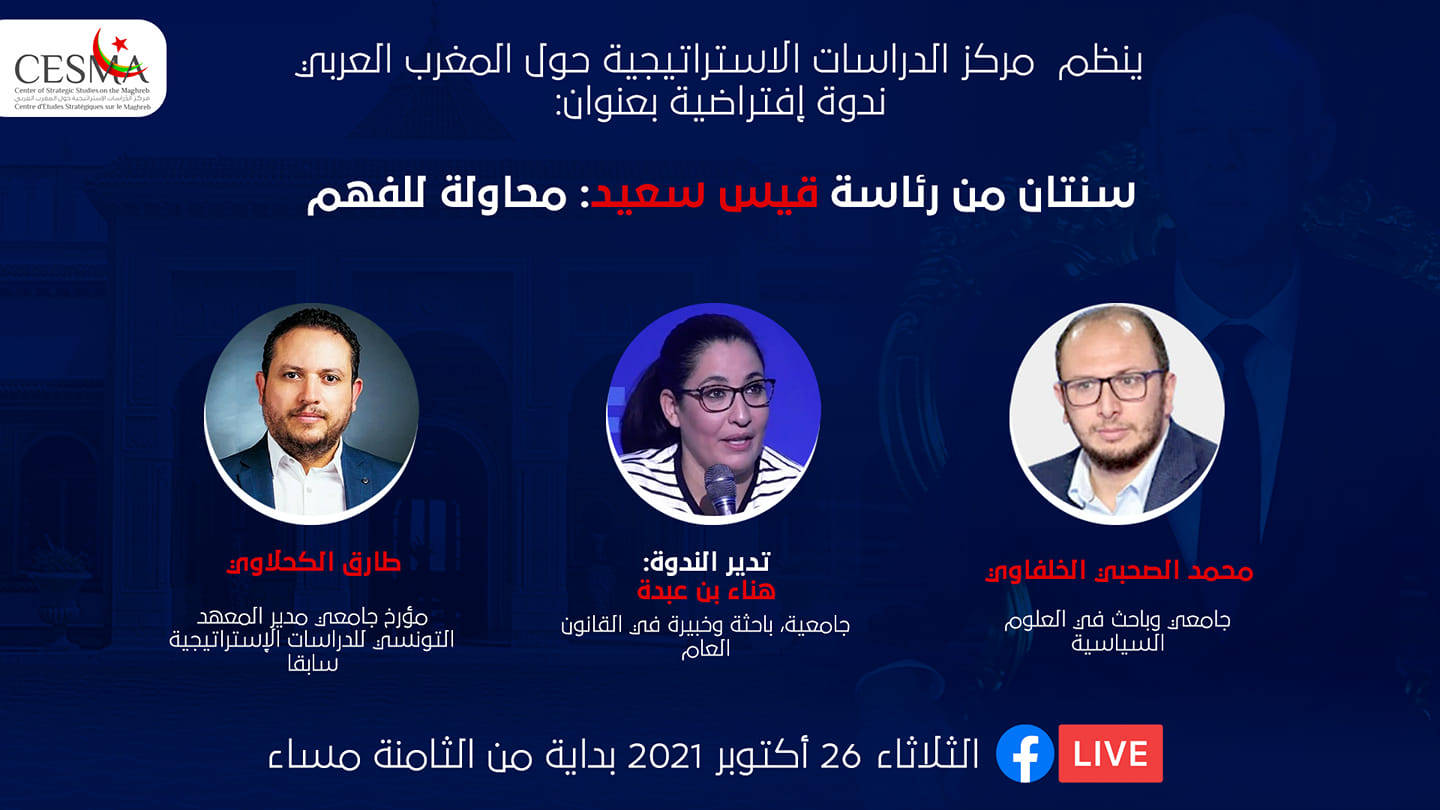Virtual seminar, Tuesday, October 26, 2021-10-24
Two years have elapsed since Kais Saied assumed the presidency of the Republic in Tunisia, in what was considered an unprecedented electoral phenomenon. If one tries to divide this period into a first period ranging from being elected by universal suffrage with a percentage of approximately three-quarters of the votes declared in October 2019 to the limits of July 25, 2021, and a second period following July 25 and characterized by his monopolization of all powers, one realizes that a certain number of characteristics has consistently marked the two periods.
Many agree that Kais Saied’s presidency is so far atypical, as were his electoral campaign and electoral victory, as well as his dealings with the components of the political arena in general and political parties in particular. It is atypical in relation to what we have known over the last decade, others say, but it is typical of the experiences of other peoples in other periods, and even characteristic of a kind of political orientation that produced other presidents in more ancient democratic countries.
In all cases, there is some kind of consensus that Kais Saied was a product of the “democratic transition” crisis, especially the crisis of the parties after the revolution, and as a result of the crisis of the difficulty of concentrating institutions resulting from the 2014 constitution, and the inability of the successive elites ruling the country to respond to the economic and social demands of Tunisians.
In this symposium, the Center for Strategic Studies on the Maghreb will host two researchers who adopt two different points of view, namely Mohamed Sahbi Khalfaoui and Tarek Kahlaoui, in a meeting moderated by the researcher Hana Benabda.
Mohamed Sahbi Khalfaoui, a researcher in political science, compares Kais Saied to the classic models of dictatorships and populism in general, while Tarek Kahlaoui, by virtue of his political and institutional experience, his analyses of populism and the crisis of liberal democracy, and his follow-up to political and partisan affairs, represents a more relative view. As for Hana Benabda, director of the seminar, a specialist in public law, and an academic and civic activist, she combines specialization and close follow-up to Tunisian political transformations and political independence.
– Mohamed Sahbi Khalfaoui: Professor-Researcher at the Faculty of Legal, Economic and Management Sciences in Jendouba, Tunisia, and researcher at the Tunisian Observatory for Democratic Transition. Along with his academic and associative activities, Khalfaoui recently participated in a collective book entitled “ la tentation populiste”, issued by Ceres Publishing House in 2020.
– Tarek Kahlaoui: former director of the Institute for Strategic Studies affiliated with the Presidency of the Republic (2012-2014), a historian, is a renowned specialist in the study of the Salafist movement. He is currently preparing a book on populism and the crisis of liberal democracy. He is also a political analyst in many Tunisian and foreign media.
– Hana Benabda: Professor and Researcher at the Faculty of Legal, Economic and Management Sciences in Jendouba, is active in the Tunisian Association of Constitutional Law and the International Academy of Constitutional Law, expert and analyst in constitutional affairs and electoral laws in the Tunisian and foreign media, and a consultant to several international institutions.


